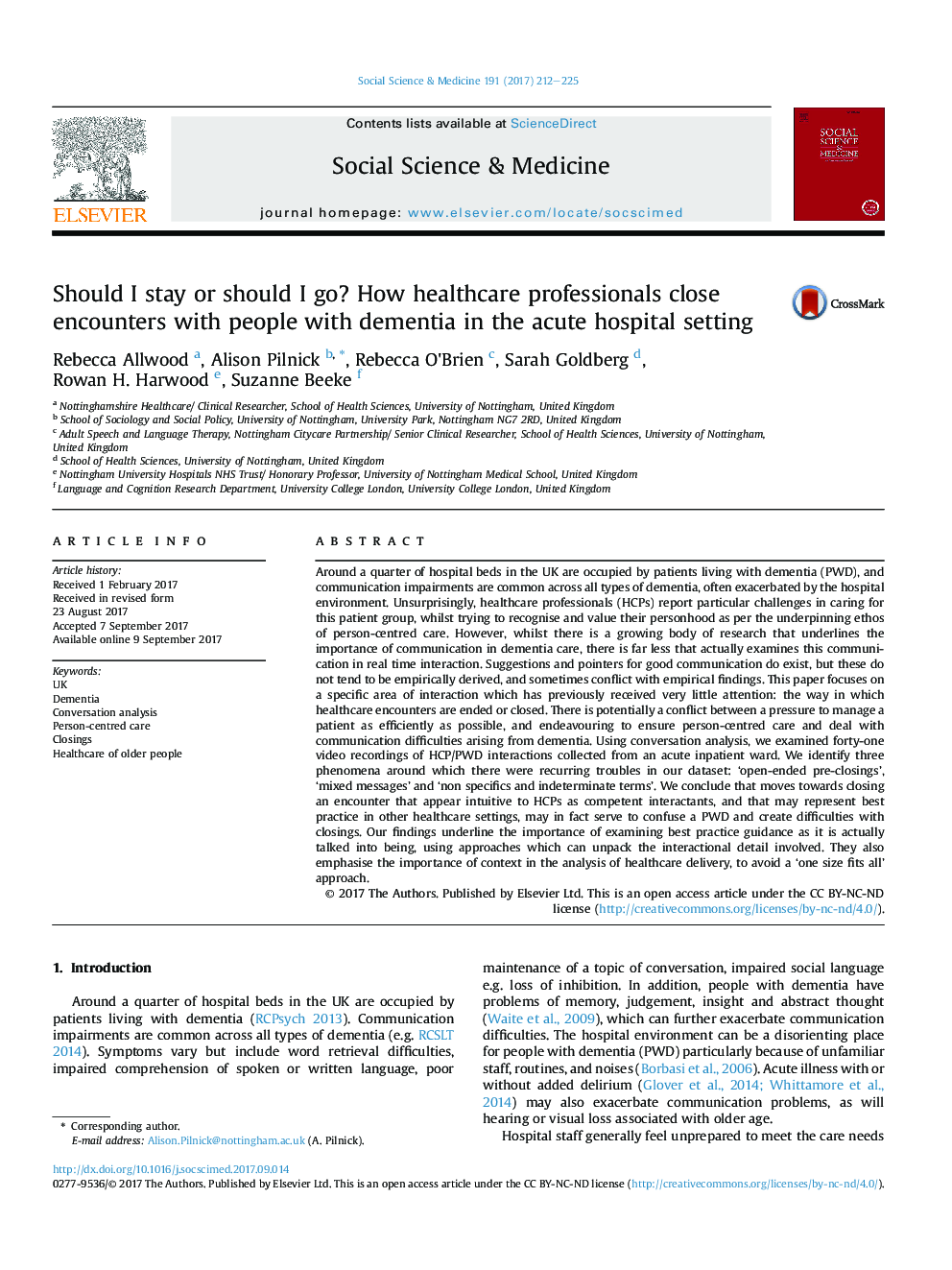| کد مقاله | کد نشریه | سال انتشار | مقاله انگلیسی | نسخه تمام متن |
|---|---|---|---|---|
| 5046306 | 1475978 | 2017 | 14 صفحه PDF | دانلود رایگان |
- Closing care encounters with PWD can be particularly challenging for staff in acute care.
- Using conversation analysis to examine video recordings highlights recurring issues.
- Standard 'person-centred' moves towards closing may be inappropriate for PWD.
- Some standard closing practices may be too subtle or ambiguous for PWD to orient to.
- Tensions arise for HCPs between assuming competency and allowing for impairment.
Around a quarter of hospital beds in the UK are occupied by patients living with dementia (PWD), and communication impairments are common across all types of dementia, often exacerbated by the hospital environment. Unsurprisingly, healthcare professionals (HCPs) report particular challenges in caring for this patient group, whilst trying to recognise and value their personhood as per the underpinning ethos of person-centred care. However, whilst there is a growing body of research that underlines the importance of communication in dementia care, there is far less that actually examines this communication in real time interaction. Suggestions and pointers for good communication do exist, but these do not tend to be empirically derived, and sometimes conflict with empirical findings. This paper focuses on a specific area of interaction which has previously received very little attention: the way in which healthcare encounters are ended or closed. There is potentially a conflict between a pressure to manage a patient as efficiently as possible, and endeavouring to ensure person-centred care and deal with communication difficulties arising from dementia. Using conversation analysis, we examined forty-one video recordings of HCP/PWD interactions collected from an acute inpatient ward. We identify three phenomena around which there were recurring troubles in our dataset: 'open-ended pre-closings', 'mixed messages' and 'non specifics and indeterminate terms'. We conclude that moves towards closing an encounter that appear intuitive to HCPs as competent interactants, and that may represent best practice in other healthcare settings, may in fact serve to confuse a PWD and create difficulties with closings. Our findings underline the importance of examining best practice guidance as it is actually talked into being, using approaches which can unpack the interactional detail involved. They also emphasise the importance of context in the analysis of healthcare delivery, to avoid a 'one size fits all' approach.
Journal: Social Science & Medicine - Volume 191, October 2017, Pages 212-225
